Common Wealth Charlotte Selected to Participate in Year-Long Training Course to Further Strides in Trauma-Informed Education.
Common Wealth Charlotte (CWC), a Charlotte-based nonprofit dedicated to equipping low-income wage earners with increased financial capability, recently completed a year-long training course offered by the National Council for Mental Wellbeing (NCMW). As a national organization working to ensure mental wellbeing is a reality for all, NCMW drives policy and social change on behalf of over 3,100 mental health and substance use treatment organizations; and to more than 10 million children, adults and families nationwide.
Committed to the prosperity of Charlotte’s most economically-vulnerable populations, CWC had the opportunity (through a grant) to dedicate resources and staff to NCMW’s year-long training program with the intent to further develop high-quality trauma-informed financial training programs for their clients.
A term more readily understood in both the mental health and financial fields, trauma-informed education refers to education that incorporates an understanding and recognition of the physical, psychological, and emotional trauma caused by living in poverty and in lower-income households, and how those experiences affect financial decision-making. Having a greater understanding of a client’s historical trauma CWC is more aptly equipped to aid in providing appropriate support and resources.
An estimated 200,000 hourly-wage earners in Mecklenburg County bring home 30-60% Area Median Income ($2,000-$2,750) per month, this large population lives daily in financial uncertainty and are burdened with the stress of financial trauma. Alarmingly, this trauma can span multiple generations and establish familial patterns of ongoing poverty and financial instability. Additionally, according to the latest data from the Charlotte-Mecklenburg Housing & Homelessness Dashboard in late 2022, there are over 3,000 Mecklenburg County residents living in housing instability, many of whom are experiencing homelessness for the first time.
CWC was founded in 2015 to serve this population. Partnering with workforce development agencies and other organizations dedicated to the upward mobility of people who are financially vulnerable, CWC focuses on helping their clients replace uncertainty and reliance on charitable assistance with safe and affordable banking and credit solutions alongside certified financial counselors utilizing a trauma-informed educational approach.
A series of experiments conducted by researchers from Princeton, Harvard, and the University of Warwick concluded that “poverty imposes such a massive cognitive load on the poor that they have little bandwidth left over to do many of the things that might lift them out of poverty (e.g. going to night school, search for a new job or pay their bills on time). The findings undercut the theory that poor people, through inherent weakness, are responsible for their own poverty or that they should be able to lift themselves out of poverty with enough effort.”
“Offering a trauma-informed approach is an important core of CWC’s mission,” shared Chuck Jones, CWC’s Executive Director. “We are committed to understanding the patterns of poverty established in our clients’ lives and helping them break those cycles. Our staff is always striving to make sure we are offering a warm, comfortable approach for our clients so they can productively engage and feel safe with us.”
Regardless of the means in which CWC provides these services (appointments, workshops, social media, newsletters, etc.), its mission is to provide clients with the most well-rounded and supportive resources to rise out of financial insecurity. Through its trauma-informed training programs, the organization proves every day that a dedicated client can successfully move away from continual reliance on government or charitable assistance into graduated tiers of financial capability. With this, clients can experience a reduced impact in trauma associated with a life in poverty, as well as enhanced financial decision making. From this, the cycle begins to be broken – for their own lives and generations to come.
Chuck Jones goes on to share, “our organization holds itself to an extremely high operating standard and prioritizes continued training and education amongst our staff and leadership. We were excited to have the opportunity to participate in the training program provided by the National Council for Mental Wellbeing and honored to further provide our clients with the most innovative resources they need to make positive financial changes in their lives.”
---
About Common Wealth Charlotte
Making an impact in the Charlotte area since 2015, CWC focuses on helping underserved communities replace uncertainty and reliance on charitable and government assistance with trauma-informed educational methods and certified financial counseling to provide access to safe and affordable banking solutions. Committed to the prosperity of each client’s long-term financial health, CWC is dedicated to equipping low-income wage earners with increased financial capability.
To learn more about Common Wealth Charlotte and how to create Trauma-Informed Financial Education programs, visit www.commonwealthcharlotte.org.
